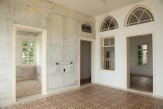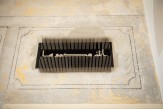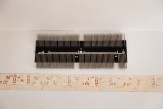Khaled Malas
Assistant Professor Adjunct
Khaled Malas is an architect and art historian. He is the principal of Sigil, an art/design collective based in New York City, Beirut, and soon in Damascus, that explores the metamorphoses of Arab landscapes marked by historical and contemporary struggles. Sigil’s work has been widely exhibited, most recently at Chicago Architecture Biennial (2023) and the British Museum (2022-2024).
Khaled’s academic and design research focuses on images and image-making technologies that produce and challenge the potential of places, real and imagined. He is currently completing a PhD in Islamic Art and Architectural History at NYU’s Institute of Fine Arts. His dissertation explores medieval magico-medicinal bowls that bear a depiction of the Kaaba, the cubical structure in Mecca.
In addition to his research and teaching at The Cooper Union, Khaled teaches at NYU’s Gallatin School and at Pratt Institute’s History of Art and Design Department. His creative practice was the subject of a recent interview, “What We Opt to Do” (Art Papers, Spring 2022: 30–33). His latest work, The Longest Words: Three Talismans for Conditioning the Air (Yumum, 2024–) is a site-specific installation built into the walls of an early twentieth century house in Beirut.
Khaled holds a post-Professional Master’s Degree in Architecture from Cornell University and a Bachelor of Engineering in Architecture from the American University of Beirut.
He remains committed to hope.
Projects
-

The Longest Words: Three Talismans for Conditioning the Air (2024-)
Back
The Longest Words: Three Talismans for Conditioning the Air (2024-)
Part of the inaugural exhibition at Yumum titled “And from my heart I blow kisses to the sea and houses” (curated by Ala Tannir), The Longest Words is a site-specific installation comprising three diffusers designed for this Beirut house that has survived a century of real estate speculation and martial urbicide. Manufactured from steel and pearls—materials with deep antecedents in affective design— these diffusers channel apotropaic force into the building’s electro-mechanical systems.
(Photographs of installation by Vicken Avakian)






